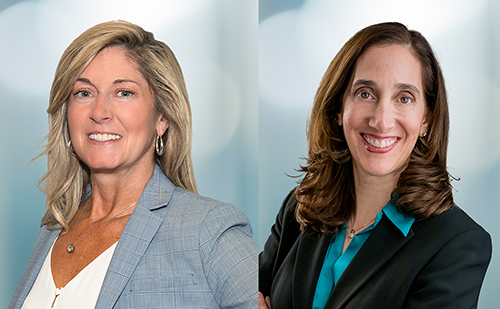Professors, administrators and counsel applaud proposed ABA standard on academic freedom

“It’s important for schools to clearly state that the disruption of speakers is not tolerated, and if students do that, they will face academic discipline,” says Erwin Chemerinsky, dean of the University of California at Berkeley School of Law and an ABA Journal contributor. Image from Shutterstock.
Following various controversies around campus speech and a U.S. House of Representatives committee request to investigate a Stanford Law School incident, the Strategic Review Committee of the ABA’s Section of Legal Education and Admissions to the Bar has proposed a new accreditation standard focused on guidance for academic freedom policies.
Outlined in an Aug. 2 memo, the proposal also addresses freedom of expression. Currently, Standard 405(b) requires law schools to have an “established and announced policy” about academic freedom. The memo suggests creating a new standard, which would include language saying it applies to full- and part-time faculty, affords due process to people who claim their academic freedom has been violated and condemns disruptive behavior that hinders free expression.
The memo marks the first step of the proposed revision, and its authors suggest it go out for notice and comment if approved, as is customary with standards changes. The Legal Education and Admissions to the Bar council is scheduled to vote on the matter Friday when it meets in Chicago.
Details of the Stanford Law School speech are not included in the memo, but it does cite an incident from March 2023, which was when Judge Stuart Kyle Duncan of the 5th U.S. Circuit Court of Appeals at New Orleans spoke at a campus Federalist Society event. While in private practice and on the bench, Duncan has done work that some find harmful to transgender individuals. A video of the event shows members of the audience heckling Duncan as well as an exchange with Tirien Steinbach, then the law school’s associate dean of diversity, equity and inclusion.
According to the August memo, the U.S. House Committee on Education and the Workforce requested that the council investigate Stanford Law’s compliance with Standard 405. The memo also says the request did not influence the proposal to add a standard specifically addressing academic freedom and freedom of expression.
Lawyers interviewed by the ABA Journal say the Stanford incident raises issues of free speech, but not academic freedom. They also think more guidance is needed on both topics, and a new, more detailed accreditation standard would be helpful.
Additionally, there’s a strong sense that while freedom of expression rights may protect some speech that leads to disruptions, there is generally not a protected right to disrupt a speaker.
“It’s important for schools to clearly state that the disruption of speakers is not tolerated, and if students do that, they will face academic discipline,” says Erwin Chemerinsky, dean of the University of California at Berkeley School of Law and an ABA Journal contributor.
He sees protests outside or inside a building, including standing in the back of an event space or classroom with signs, as protected speech, providing the actions don’t disrupt the speaker or prevent the audience from hearing and seeing what is said.
The proposed standard, which Chemerinsky describes as “terrific and well done,” suggests condemning disruptive behavior that prevents or interferes with law school functions and activities.
Brian Gallini, dean of the Willamette University College of Law, says it might be helpful if academic freedom was addressed in accreditation standards focused on learning assessments, objectives and outcomes, which also have proposed revisions on the council’s Aug. 18 agenda.
“By separating the issues out, it could make law schools feel like outcomes are over here, academic freedom is over there, and the two shall not meet. But in reality that’s not the way a classroom plays out,” says Gallini. He’d like to see objectives and assessment standards include language about opportunities for robust debate in learning environments, but admits that could be a significant task.
Currently, many universities base academic freedom policies on the American Association of University Professors’ 1940 Statement of Principles on Academic Freedom and Tenure. The document asserts that teachers are entitled to academic freedom in research and publication as well as in the classroom, but they should be accurate, exercise appropriate restraint, respect others opinions and make clear they are speaking for themselves, not their institution.
It’s likely the statement’s authors never envisioned issues facing universities today, says Paul Lannon, a Holland & Knight partner who co-chairs the firm’s education law team.
“This kind of guidance from the ABA is long overdue. The current standard doesn’t provide any substance,” he adds.
The proposed revision also includes language saying law schools can restrict expression that violates the law, defames a specific individual or amounts to a genuine threat or harassment. Lannon says the line between academic freedom and harassment should be clear, but there are some gray areas.
“Sexual harassment being one or an argument of anti-Semitism, like criticism of Israel versus criticism of people who are Jewish,” he says.
Catherine Ross, a professor emerita at George Washington University Law School, likes the idea of adding an ABA accreditation standard that addresses academic freedom and freedom of expression. She also would like to see language added about state laws that restrict academic freedom and campus speech.
Florida passed a 2022 law that aims to censor public schools, including colleges and universities, from teaching about race, national origin and the impacts of slavery, according to a federal lawsuit that challenges the legislation. Plaintiffs include LeRoy Pernell, a former law school dean who now is a professor at Florida A&M University College of Law.
In March, an 11th Circuit Court of Appeals ruling upheld a preliminary injunction blocking the law, known as the W.O.K.E. Act, from being enforced until the court issues a decision on the merits.
“I think the [proposed standard] should say expressly that law schools have an obligation to protect their faculty from state reprisals,” says Ross, a First Amendment scholar.
See also:
ABAJournal.com: “Following Stanford Law incident at Federalist Society event, associate DEI dean leaves role”
ABAJournal.com: “Stanford Law’s Black Law Students Association pulls out of recruiting activities after Federalist Society event”



